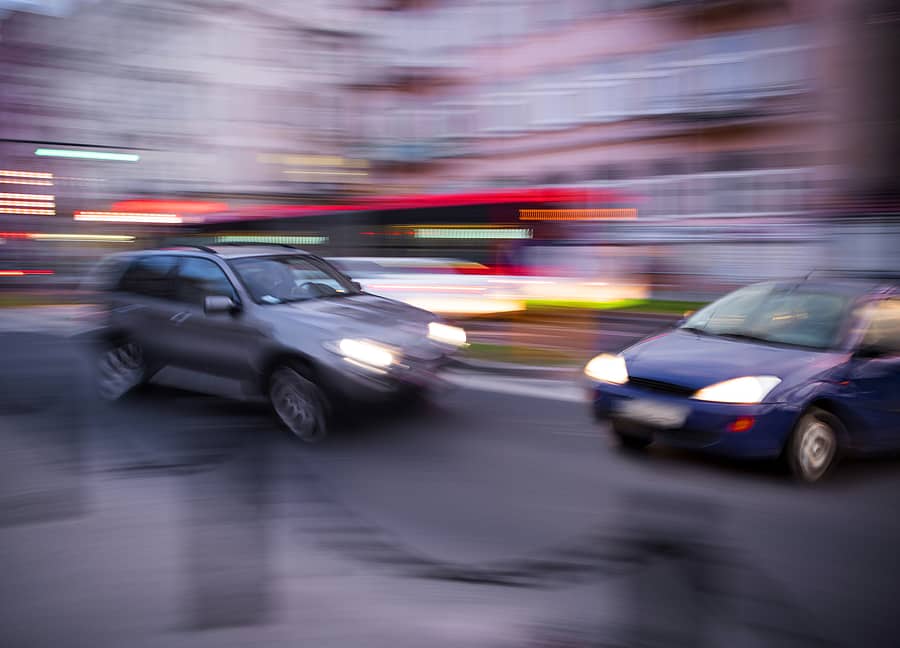
When you’re out on the road, the chances of an accident are high. Every year thousands of motorists are killed on the road, and many more are left injured, having to spend time in hospital, and deal with the shock of an incident on the road.
Accidents can be linked to many factors – from carelessness to distraction and even inebriation behind the wheel. When something goes wrong on the road, there will always be contributing factors. What are the major causes of road accidents in the UK, and what can be done to reduce your chances of being at fault?
1. Distractions
Not paying full attention behind the wheel is the leading cause of accidents in the UK. Whether it’s texting on the phone, eating, reading a book, putting on make-up, or turning round to talk to the passengers, taking your eyes off the road is bad news. You’re 400% more likely to be involved in a crash if you’re on your phone. The police don’t take kindly to it either, with the power to issue a £200 fine and a six points on your license.
Multi-tasking is a myth. We cannot effectively do more than one thing at once. Especially when they’re complex tasks like driving. Being distracted slows your reaction times, and holding onto something else like a sandwich or phone means you don’t have both hands on the wheel.
As phones can be the main source of distraction, with the endless high pitched alerts or ringing notifications designed to catch your attention, why not put it on airplane mode? Better yet turn it off completely and throw it in the rear of the car or the glovebox. And whilst eating behind the wheel isn’t illegal, you can still be prosecuted if the police or the courts deem you were not in proper care of the car – which is careless driving.
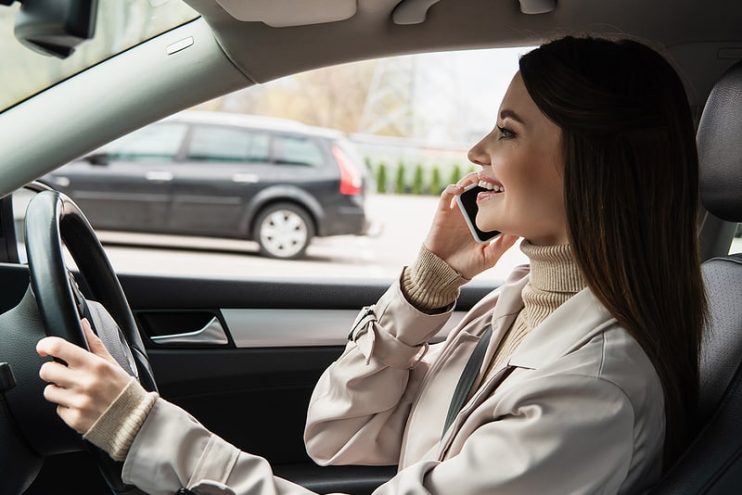
2. Breaking the Speed Limits
Many drivers out there like to speed. Go out on any road and they’ll be countless drivers rushing around, speeding and breaking the limits. It doesn’t take a mathematician to realise that the faster you go, the less reaction time you have to prevent an accident. Plus hitting a car or a pedestrian whilst you’re accelerating or at high speeds is likely to have worse consequences – more damage is done the faster you’re travelling.
Even though we have safer roads, speed awareness courses and even better braking systems on cars, excessive speed is still up there as one of the leading causes of accidents. Break the speed limit and you could be looking at a £100 fine and 3 points on your license. Get 12 points on your license (or just 6 points if you’re in the 2 year period after passing your test) and you could be disqualified from driving completely.
3. Inexperience
You’re young. You’ve just passed your test. You think you’re indestructible and that accidents are something that happens to other people. Often a youthful lack of experience can let young drivers become complacent, or the excitement of passing their test can lead to overconfidence.
Unfortunately it’s often only a few close scrapes that brings a realisation that caution and prudence behind the wheel are a good thing. If you’re an inexperienced driver remember to take your own time, don’t try risky or flashy manoeuvres and don’t feel ashamed to be that little more cautious. It’s easier than learning the hard way.
4. Dangerous Driving
We are not just talking about speeding. Dangerous driving can include tailgating, driving aggressively, road rage, illegal over and undertaking, or even street racing. All of these activities can very quickly end up in accidents, proving fatal in the worst situations.
Dangerous driving is a serious offence, and likely to be looked on very poorly by the traffic police who have to contend with death on the roads every single day. Tailgaters can be issued with fixed penalty notices, and those deemed to be driving carelessly could be compelled to take a driving course. However, if your offence goes all the way to court, you could be on the wrong end of a fine of up to £5,000, 3 to 9 points on your license, or even automatic disqualification.
5. Drugs and alcohol
Being compromised in some kind of inebriated or altered state is still one of the leading causes of accidents on UK roads despite spot checks and awareness campaigns. Many people believe that they are safe to drive after a couple of beers or even a smoke of marijuana, despite strong medical and scientific evidence to the contrary. Even small doses of drugs and lower alcohol drinks will seriously impede your reaction times, putting you and other road users and pedestrians in danger. If you are caught driving under the influence, you’ll also most likely face an automatic ban or even a jail sentence for multiple offences.
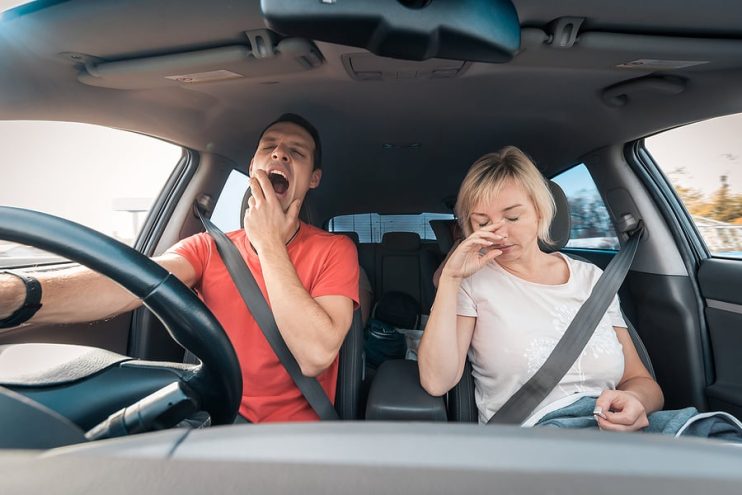
6. Fatigue, Illness and Tiredness
If you’re struggling to stay awake, then simply don’t drive. According to many reports, fatigue behind the wheel is one of the biggest cause of accidents in the UK. And it’s not only driving at night that’s a danger. Long spells behind the wheel can become monotonous and almost hypnotic, lulling you into microsleeps where you close your eyes for a few vital moments.
Illness is another factor that can cause drowsiness behind the wheel. And if you are suffering from a malaise, don’t forget to check any medicine for side-effects of drowsiness before you set off on the road. Additionally driving in the early morning, when you would usually be asleep, can also see you nodding off.
Staying refreshed, hydrated and stimulated will ensure you stay sharp, alert and focused behind the wheel. Stop for a break if necessary, or even pull in to a car park for a proper rest. There are plenty of known techniques to help you ward off the threat of tiredness.
7. Awareness of Other Road Users
Be alert and awake to all the other risks around you. Make sure you do all your checks at junctions and use your mirrors at all times before you make a move – not only for cars, but especially for motorbikes and bicycles, which are harder to spot. A department of transport study from 2012 states that around 42% of crashes investigated by the police involved that drivers failing to assess the situation properly.
Cyclists pose one of the greatest dangers, with more riders on the roads in the UK than ever. Knowing how cyclists behave and when to give way is becoming an increasingly important part of road safety. For instance, even getting out of the car can be hazardous; with drivers now recommended to use a technique called the Dutch reach. Use the hand furthest away from the door to open your door, forcing your body to twist and scan the whole of your carline for cyclists, stopping you from opening the door onto an oncoming rider.
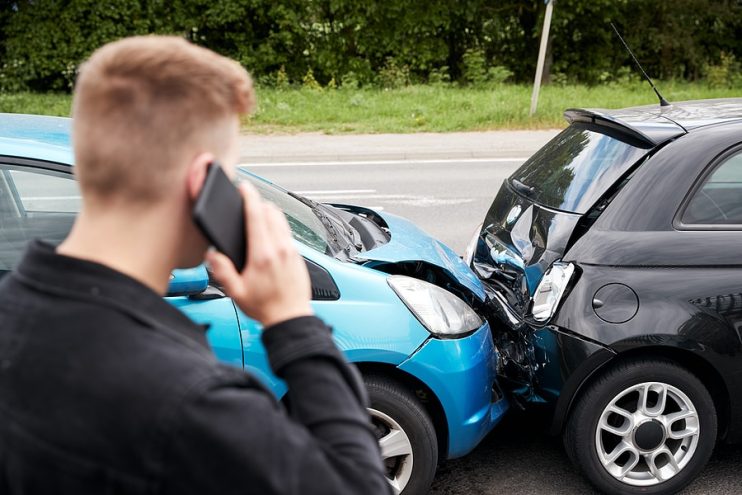
Our Final Words
If you’re going somewhere you haven’t been before, then do the groundwork. Know where you have to go, update the Sat Nav and check the internet for diversions, so you don’t get caught out. Equip yourself with a map in case you lose reception. Being unsure of where you’re going puts you in danger of having to make a corrective action or worse still, taking your eyes off the road.
Additionally defects and issues shouldn’t go ignored; don’t forget your regular checks and maintenance, as any problems, especially with brakes, steering or tyres could lead to crashes and accidents. A car that’s working properly is a safe car. If your vehicle isn’t behaving as you’d expect on the road this is when trouble could potentially come your way.
Part of being safe out on the roads is being prepared. With all the other dangers out there the least you can do for yourself is make sure you know where you’re going and that your vehicle won’t put others at risk.


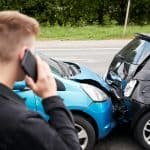





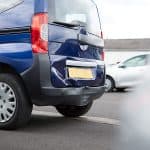

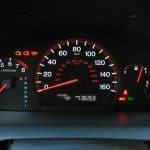

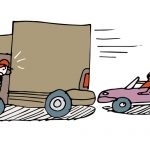
.png)